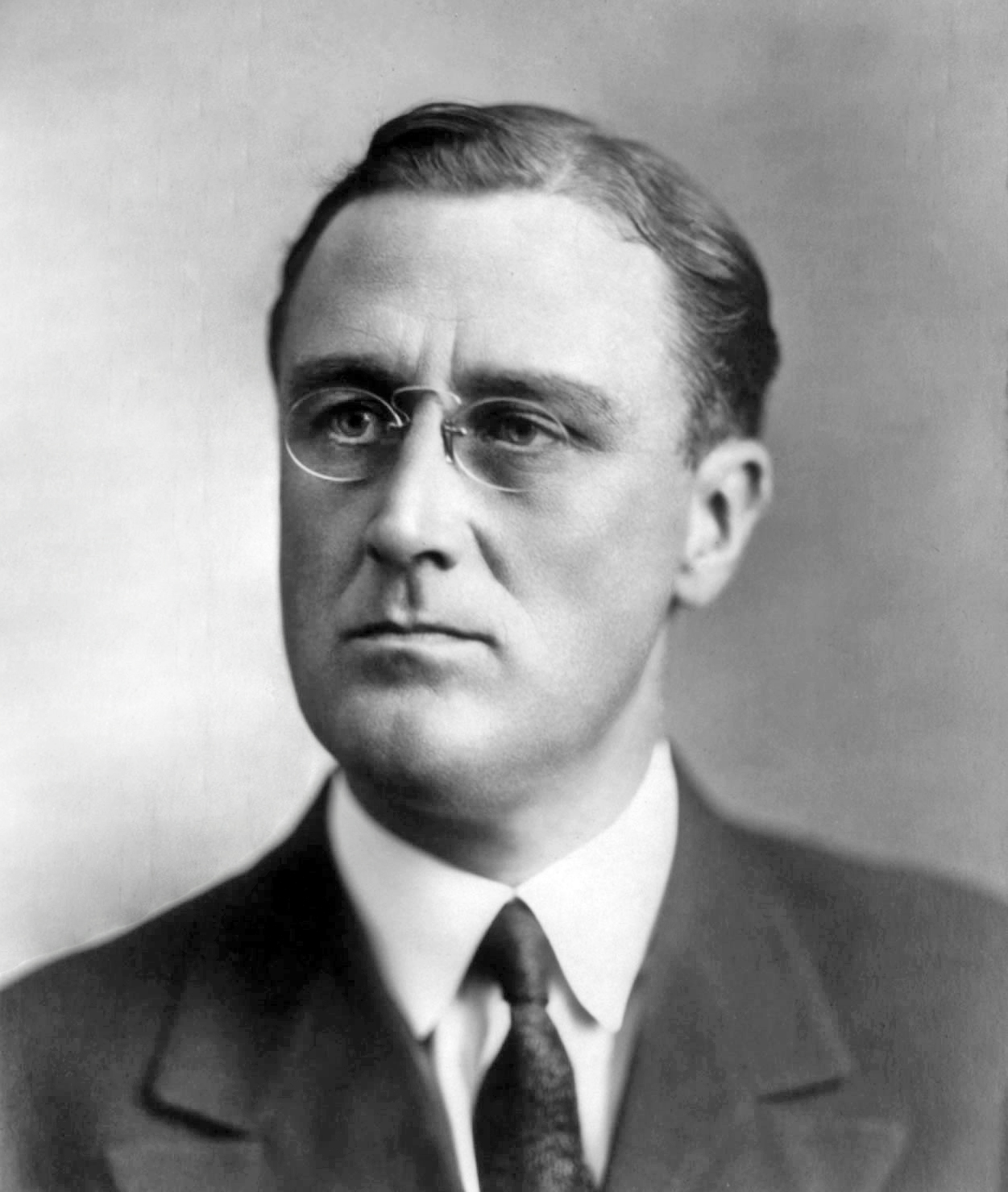
Louis M. Howe
Louis McHenry Howe (January 14, 1871 – April 18, 1936) was an American reporter for the New York Herald best known for acting as an early political advisor to President Franklin D. Roosevelt. Born to a wealthy family in Indianapolis, Indiana, Howe was a small, sickly, and asthmatic child. The family moved to Saratoga Springs, New York, after serious financial losses. Howe married Grace Hartley and became a journalist with a small paper that his father purchased. He spent the next decade freelancing for the New York Herald and working various jobs. Howe was then assigned to cover the New York state legislature in 1906, and soon became a political operative for Thomas Mott Osborne, a Democratic opponent of the Tammany Hall political machine. After Osborne fired Howe in 1909, Howe attached himself to rising Democratic star Franklin D. Roosevelt, with whom he worked for the rest of his life. Howe oversaw Roosevelt's campaign for the New York State Senate, worked with him in the Navy Department, and acted as an advisor and campaign manager during Roosevelt's 1920 vice presidential run. After Roosevelt contracted polio in 1921, resulting in partial paralysis, Howe became Roosevelt's public representative, keeping his political career alive during his recovery. He arranged Roosevelt's 1924 "Happy Warrior" convention speech that returned him to the public eye, and helped to run Roosevelt's narrowly successful 1928 campaign to become Governor of New York. Howe then spent the next four years laying the groundwork for Roosevelt's landslide 1932 presidential victory. Named Roosevelt's secretary, Howe helped the president to shape the early programs of the New Deal, particularly the Civilian Conservation Corps. Howe grew ill shortly after Roosevelt's election, and died before the end of his first term. Howe also acted as a political advisor to Franklin's wife, Eleanor, and he encouraged her to take an active role in politics, introducing her to women's groups and coaching her in public speaking. Eleanor later called Howe one of the most influential people in her life. Franklin Roosevelt biographer Jean Edward Smith called Howe "a backroom man without equal in Democratic politics", and Roosevelt publicly credited Howe and James Farley for his first election to the presidency in 1932. |
Birth and Death Data: Born January 14, 1871 (Indianapolis), Died April 18, 1936 (Bethesda)
Date Range of DAHR Recordings: 1933
Roles Represented in DAHR: speaker
Notes: Secretary and adviser to Franklin D. Roosevelt.
 = Recordings are available for online listening.
= Recordings are available for online listening.
 = Recordings were issued from this master. No recordings issued from other masters.
= Recordings were issued from this master. No recordings issued from other masters.
Recordings
| Company | Matrix No. | Size | First Recording Date | Title | Primary Performer | Description | Role | Audio |
|---|---|---|---|---|---|---|---|---|
| Victor | MS-76364 | 16-in. | 5/31/1933 | The progress of radio | Elmer Tiling Cunningham ; Louis M. Howe | Radio broadcast : Promotional talks | speaker | |
| Victor | MS-76365 | 16-in. | 5/31/1933 | The progress of radio | Unidentified speaker(s) (Victor Records) | Radio broadcast : Promotional talks | speaker | |
| Victor | MS-76366 | 16-in. | 5/31/1933 | The progress of radio | Elmer Tiling Cunningham ; Louis M. Howe | Radio broadcast : Promotional talks | speaker | |
| Victor | MS-76367 | 16-in. | 5/31/1933 | The progress of radio | Elmer Tiling Cunningham ; Louis M. Howe | Radio broadcast : Promotional talks | speaker | |
| Victor | MS-76378 | 16-in. | 6/4/1933 | National affairs | Col. L. M. Howe ; Walter Trumbull | Radio broadcast : Interview | speaker |
Citation
Discography of American Historical Recordings, s.v. "Howe, Louis M.," accessed November 1, 2024, https://adpprod1.library.ucsb.edu/names/106065.
Howe, Louis M.. (2024). In Discography of American Historical Recordings. Retrieved November 1, 2024, from https://adpprod1.library.ucsb.edu/names/106065.
"Howe, Louis M.." Discography of American Historical Recordings. UC Santa Barbara Library, 2024. Web. 1 November 2024.
DAHR Persistent Identifier
Linked Open Data Sources
LCNAR: Howe, Louis M. (Louis McHenry), 1871-1936 - http://id.loc.gov/authorities/names/n89118383
Wikidata: Louis Howe - http://www.wikidata.org/entity/Q3262681
VIAF: http://viaf.org/viaf/54365187
ISNI: 0000 0000 3382 9473 - http://www.isni.org/isni/0000000033829473
Wikipedia content provided under the terms of the Creative Commons BY-SA license
Feedback
Send the Editors a message about this record.
